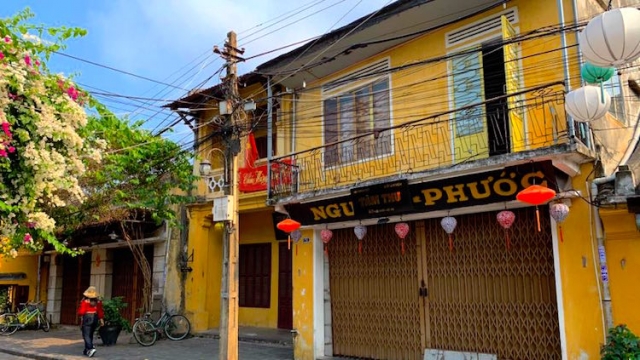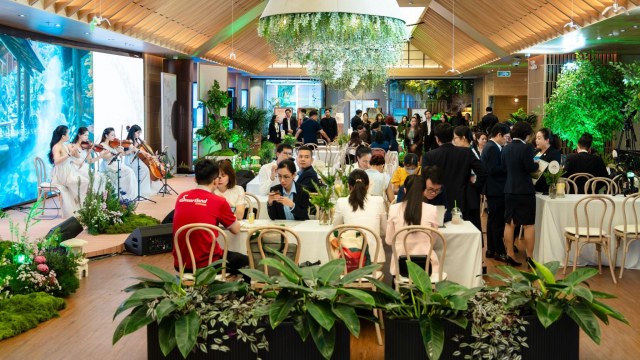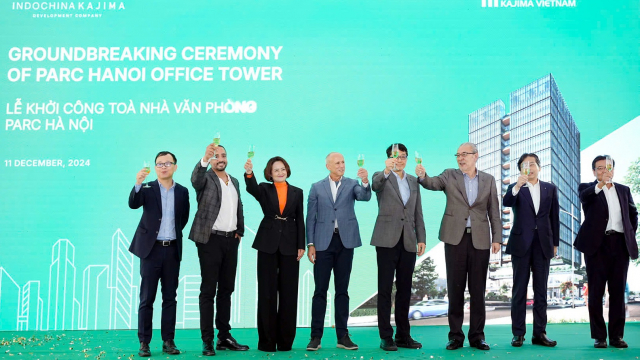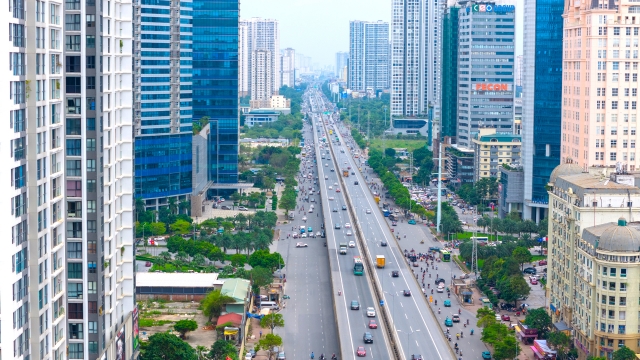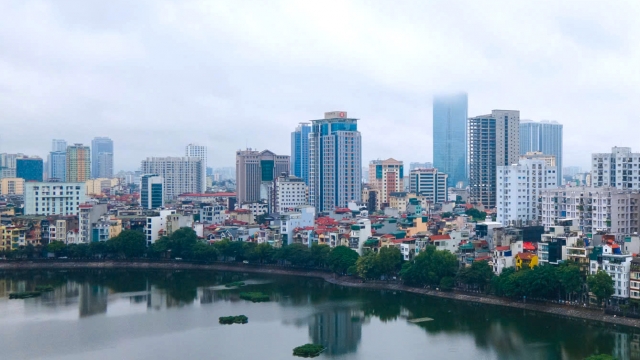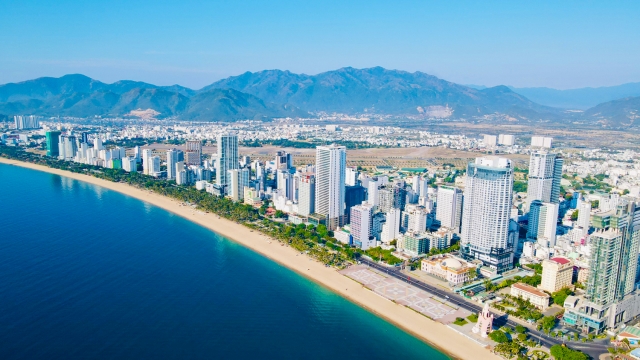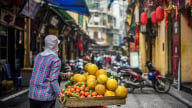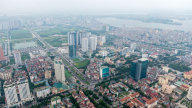Property
Vietnam's hotels suffer huge damage from coronavirus
Due to the new ban on international travelers and rising concerns domestically, hotel occupancy in the first three weeks of March dropped dramatically to a single digit in many destinations within Vietnam.
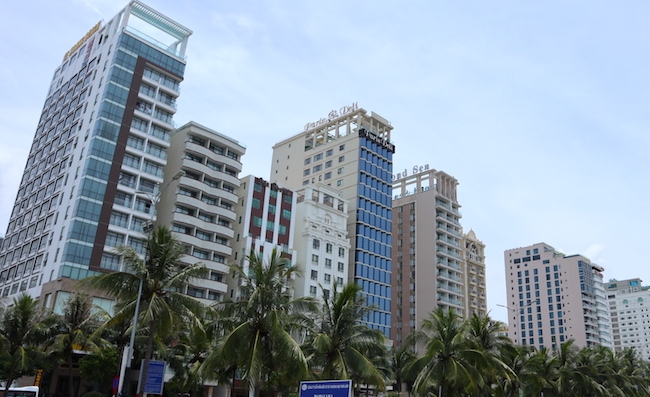
According to Mauro Gasparotti, Director of Savills Hotels Asia Pacific, among coastal destinations, Danang and Hoi An are the most affected areas due to a strong reliance on foreign guests as well as a significant number of new hotel openings last year.
Numerous properties have occupancy below 10 per cent and are considering temporary closures, he said.
The situation is similar in Cam Ranh beach, Khanh Hoa province, albeit owing to Russian groups and local travelers, some properties in the area are still able to operate.
Phu Quoc island’s occupancy was just below 40 per cent in February but the upcoming suspension of new flights is likely to lead to a further large drop.
Vietnam experienced an occupancy drop of approximately 26 per cent in February compared to same period last year.
In March, big cities received several cancellations, resulting in single-digit occupancy for Ho Chi Minh City and slightly higher levels for Hanoi, as a result of existing corporate contracts with companies such as Samsung, providing some hotels with a stable base of business.
Gasparotti emphasizes that the rapid spread of Covid-19 has caused significant damage to several industries worldwide, among which, tourism is likely to be one of the hardest hits.
The dramatic decline initially came from the drop in international travellers, starting with Chinese tourists and followed by a sharp decrease in local demand, which impacted hotels and restaurants, meetings and event spaces.
On March 6, World Tourism Organization (UNWTO) revised its 2020 prospects for international tourist arrivals to reflect a decline of 1 per cent to 3 per cent, compared to the projected positive growth of 3 per cent to 4 per cent before the outbreak.
This is the first time international arrival numbers are expected to drop after 10 consecutive years of growth.
Vietnam is facing the same situation with China and Korea representing the most significant tourism source markets, accounting for 56 per cent of international arrivals in Vietnam in 2019.
In addition, in the past two weeks the outbreak has worsened in Europe and Americas, which together, accounted for 17 per cent of tourist arrivals in Vietnam last year.
Based on the latest report of Vietnam National Administration of Tourism, the number of foreign visitors in February was down 37.7 per cent compared to the previous month and down 21.8 per cent over the same period in 2019. A further decline is expected in the coming months.
Local demand has also been dramatically affected as many are now more hesitant to travel to airports, train and bus stations and even restaurants and entertainment areas.
Recovery within a six-month period
Hospitality is always highly vulnerable to negative events, as seen in global events such as the September 11 attacks, Global Financial Crisis, SARS or specific country events such as the Japan Earthquake – Tsunami, Bali Bombing in 2002, etc.
Typically, recovery is sharp and often takes place within a six-month period. As indicated by the STR data, at the time of SARS outbreak in 2003, occupancy in Asia Pacific recovered fully in two to three months following the WHO announcement that the situation has been contained.
As Covid-19 is a much larger scale outbreak, and will have a pronounced economic impact, local travellers are expected to recover within a short timeframe whilst international visitors are anticipated to show a slower but steady recovery.
In terms of international arrivals, the first category expected to return are business travellers (especially in main gateway cities), followed by FIT and MICE, and finally international groups.
“A total rebound should not take longer than six months following the announcement that the pandemic is contained,” Mauro stated.

He said that Vietnam hospitality has been affected and this will likely continue into the foreseeable future. However, whilst the expectation is that the entire year of 2020 will be impacted, as previously witnessed, at the first light of recovery, the hospitality industry is likely to see the fastest and strongest turnout when compared to other sectors.
Vietnam’s high reliance on local travelers (82.5 per cent of arrivals in 2019) and the Chinese and Korean markets could turn out to be an advantage, as these groups are expected to be some of the first who are able to travel again.
“We should all be positive and look to the long term. From a different perspective, investment in commercial and hospitality projects, especially within the hotel and resort industry, is usually made with long term goals in mind,” said Gasparotti.
He said short-term difficulties and market fluctuations are challenges which to screen and select investors who have real management experience and the strong financial capabilities to succeed in Vietnam’s hospitality - a potential market which has caught the attention of both domestic and foreign investors.
Vietnam closes popular tourist destinations to fight Covid-19 pandemic
Essensia Parkway sells out within hours, marking an outstanding partnership with WorldHotels
Essensia Parkway makes significant impact in the high-end real estate market as 100 per cent of the limited collection was successfully registered within just a few hours at the launching event with the theme “Live lux-well, in a truly refined world”.
Essensia Parkway gains global prestige through WorldHotels - Phu Long collaboration
Essensia Parkway is set to mark a significant milestone as the first branded residences project in Ho Chi Minh City to be operated by WorldHotels – one of the finest portfolios of independent hotels and resorts within BWH Hotels.
Indochina Kajima breaks ground on Grade A office building in Hanoi’s emerging hub
Parc Hanoi marks Indochina Kajima's first office-for-lease project in its $1 billion investment plan in Vietnam.
Hanoi's property boom: Will the housing price surge ever stop?
While the average price of apartments in Hanoi has reached new heights, with supply primarily concentrated in the premium and luxury segments, there are still no signs of a price slowdown.
Luxury apartment prices soar in Hanoi amid supply shortage
The supply of luxury apartments in central Hanoi is becoming increasingly scarce, pushing starting prices to new highs.
Revitalizing Vietnam’s hospitality sector: A shift in branding
Vietnam's hospitality industry is undergoing a major transformation with a brand repositioning strategy that emphasizes unique, sustainable, and community-focused experiences.















